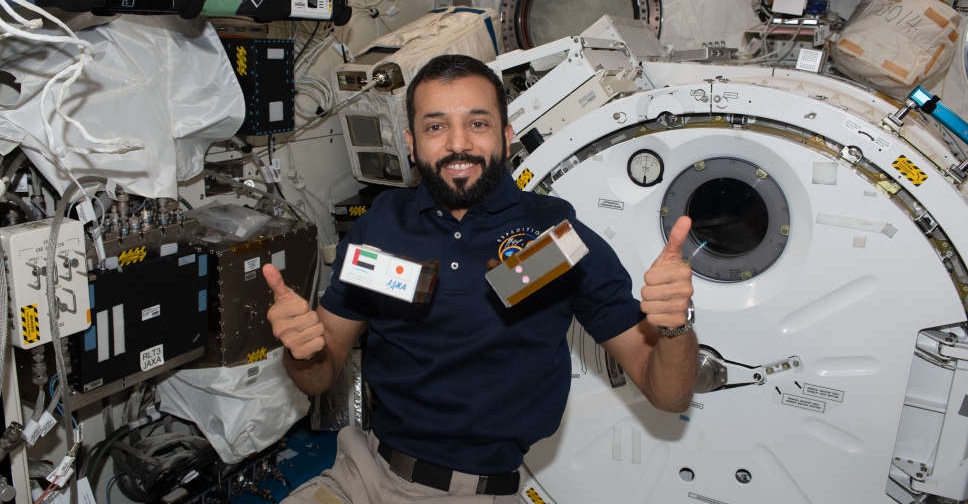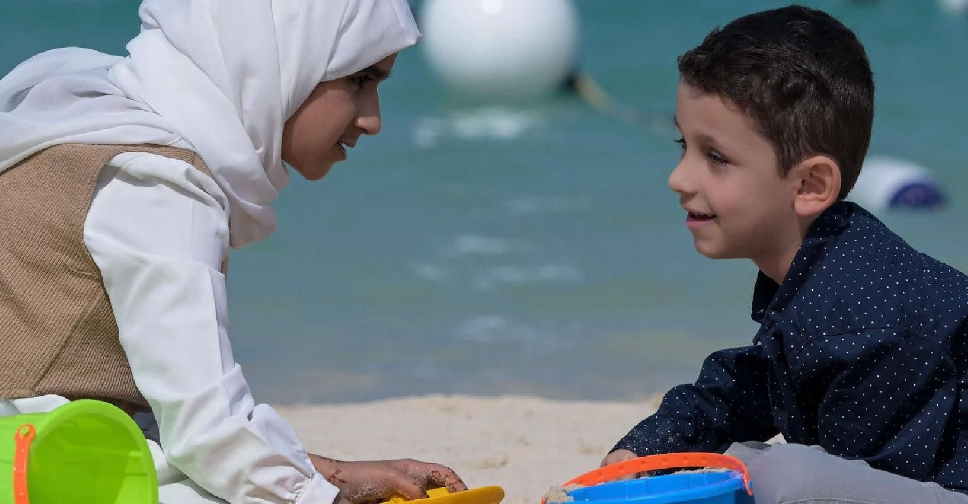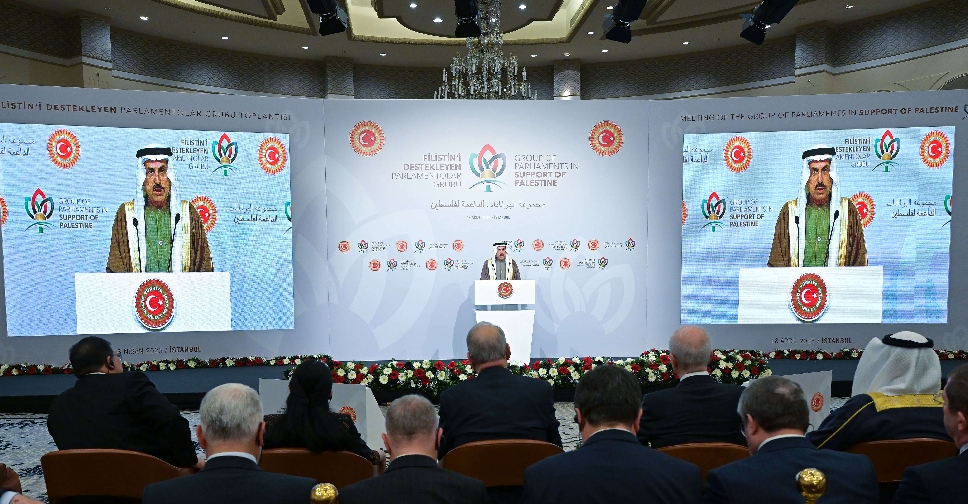
Emirati astronaut Sultan Al Neyadi has facilitated groundbreaking research in space by examining a protein pivotal to heart rate regulation, aimed at supporting treatment for cardiac issues, epilepsy and addiction.
The Protein Crystal Growth (PCG) experiment on board the Kibo module on the International Space Station (ISS) is part of a partnership between the Mohammed Bin Rashid Space Centre (MBRSC) and Japan's Aerospace Exploration Agency (JAXA).
Proposed by a research team from the Mohammed Bin Rashid University of Medicine and Health Sciences (MBRU), the experiment was launched on the recent Space X-28 cargo mission and installed by Al Neyadi on June 7.
It'll help in controlling heart rate and designing treatment to tackle several serious conditions, including epilepsy, cardiac arrhythmias and addiction.
Astronaut Sultan AlNeyadi conducts, in collaboration with JAXA, a Protein Crystal Growth experiment on the molecule GIRK 2. The experiment, proposed by the Mohammed bin Rashid University of Medicine and Health Sciences, aims to guide the development of GIRK targeted treatments. pic.twitter.com/kGJsg8qsll
— MBR Space Centre (@MBRSpaceCentre) June 22, 2023
Adnan AlRais, Manager of UAE Astronaut Programme, described it as "a significant achievement in UAE's contribution to global space science" and underscores its commitment to propel the "understanding of complex biological systems for the betterment of humanity".
After approximately one month aboard the ISS, the experiment will reach its next stage.
The sample will be returned to Earth. First for X-ray diffraction data collection in Japan, and then to the UAE research team for further analysis.
In collaboration with @JAXA_en, I did the Protein Crystal Growth experiment to study a protein associated with many health conditions, including epilepsy, which could lead to effective treatments.
— Sultan AlNeyadi (@Astro_Alneyadi) June 22, 2023
Thanks to @MBRUniversity 🇦🇪 team who proposed it and all partners who contributed. pic.twitter.com/FLzSSER3Sd
Over the past three months, Al Neyadi, along with his Expedition 69 crew members, have made significant strides in microgravity research, featuring a range of pioneering scientific investigations, including on plant biology, material science, fluid science and sleep analysis, among others.


 UAE, Chad Presidents discuss closer cooperation
UAE, Chad Presidents discuss closer cooperation
 Abu Dhabi opens dedicated beach for visually impaired
Abu Dhabi opens dedicated beach for visually impaired
 UAE reaffirms support for Palestinian cause at Istanbul summit
UAE reaffirms support for Palestinian cause at Istanbul summit
 UAE strengthens financial crime controls with key agreements
UAE strengthens financial crime controls with key agreements
